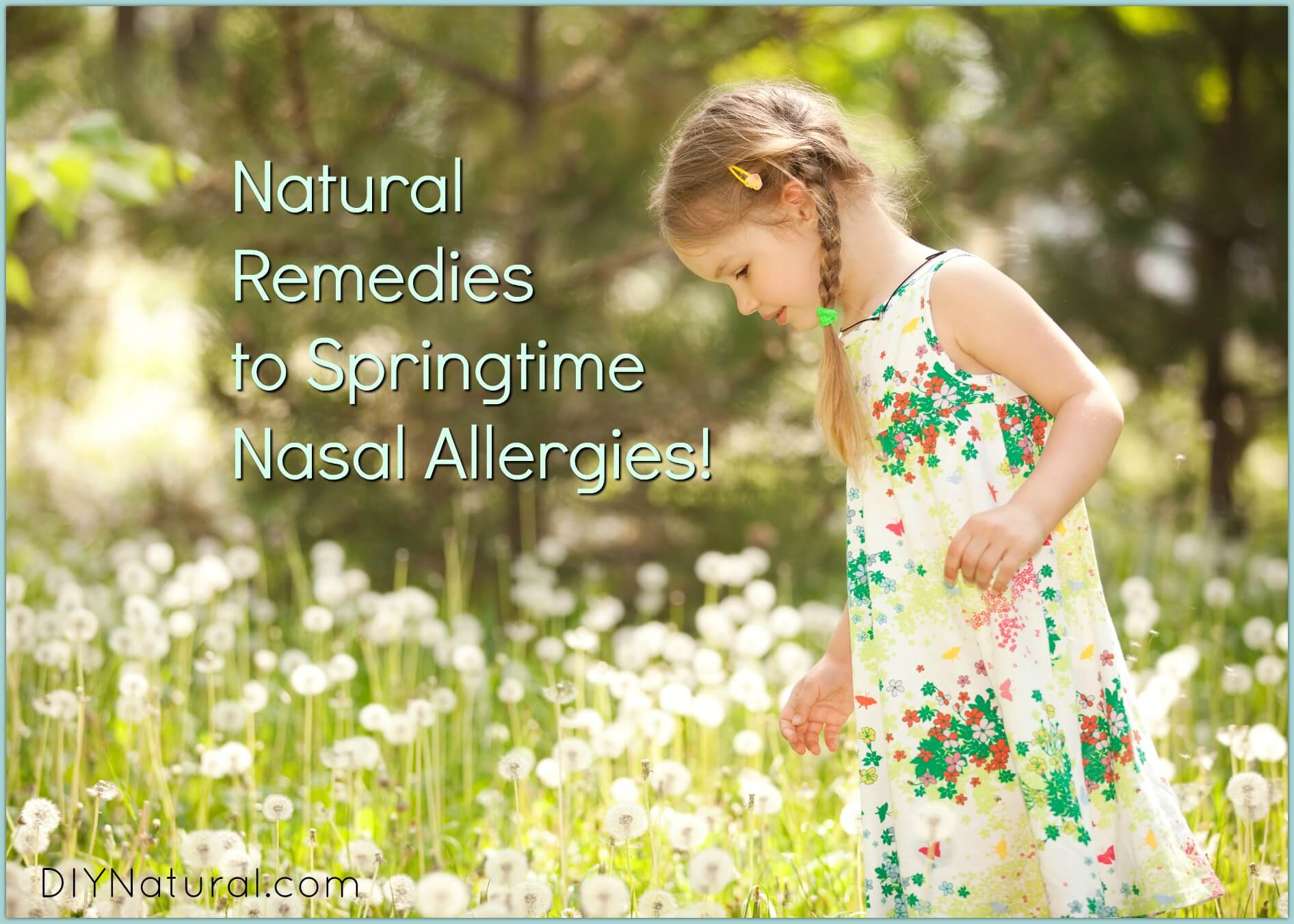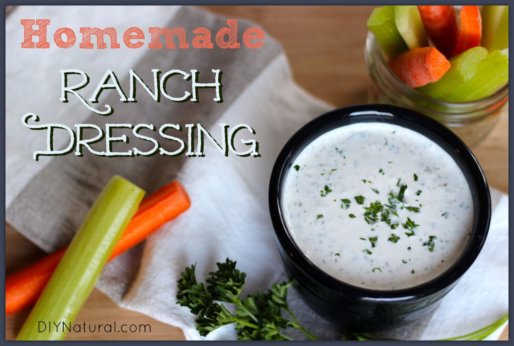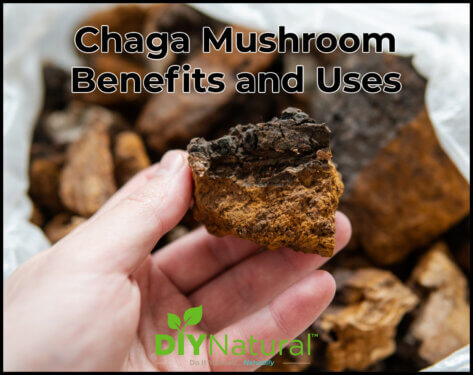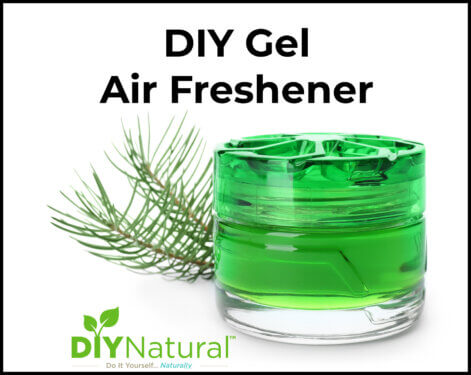I have nasal Spring allergies to a lot of what happens this time of year. The good news is, there are many ways to get relief from nasal Spring allergies. Here are a few of them!

Winters here in North Carolina are pretty mild. We have more rain than snow and that can lead to mold and mildew. Then Spring hits and the first to bloom are usually the Bradford pears, then the white pines, and finally, everything else. I have nasal Spring allergies to most of it and I don’t want to walk around sneezing or with my nose dripping. I can either use allergy medications or something natural.
Is It Spring Allergies Or The Common Cold?
While colds are as common as allergies, there are some differences. Some symptoms are the same: coughing, sneezing, and runny nose. But some are quite different. A cold can last from 4-14 days while allergies can be seasonal or ongoing. You can have an achy feeling with a cold, but not with allergies. You’ll almost never have a fever with allergies, unless it turns into an infection, but you almost always do with a cold. With allergies, you’ll nearly always have itchy watery eyes, but almost never with a cold. And the best part of having a cold (yes, there’s a good part) is that the cold will be done within about 14 days, while allergies can flare up all year.
Natural Remedies for Spring Allergies
There are many ways you can get relief from nasal Spring allergies. Here are a few of them:
Stinging Nettle
Nettles contain compounds that can help to relieve allergies. It’s best taken as a tea several times a day, but capsules are also available. Not into drinking tea? Make steamed nettles from young shoots. Use gloves to harvest, as nettle has tiny hairs containing formic acid, the same substance as fire ants, but not quite as strong. It can cause burning and itching for a few hours, but is short lived.
Once nettles are cooked, steamed, dried, or frozen, the formic acid dissipates. Eating nettles won’t be as effective as drinking them in a tea, but you should get some benefit. Read more about Stinging Nettle: How to Identify, Harvest and Eat.
Local Raw Honey
Local raw honey contains pollen from local plants – hopefully the ones you are allergic to. Raw honey is best because pasteurizing destroys the beneficial pollen, and filtering removes much of it. It should be sourced locally so that it contains the pollen of the local plants you have problems with.
So… if you’re allergic to sourwood trees, can any sourwood honey work, even if it’s not local? Theoretically yes, since most all sourwood trees are similar and produce similar pollen. But stick with local to be sure. You’ll also help support a local farmer! Read more about using local honey for allergies.
Quercetin
Quercetin is an antioxidant found in green leafy vegetables, tomatoes, and broccoli. It helps the body fight inflammation, and helps destroy free radicals. You can eat extra amounts of the veggies mentioned or you can take qurecetin in capsules. You can find it at health food stores or online.
Nasal Sprays and Washes
Using a nasal spray like a saline solution, or a nasal wash like a neti pot, can help keep pollen from your nasal passages. If it is flushed out before it gets too far, it can’t cause the histamine reaction that triggers the symptoms of allergies.
Avoiding Dairy
If your allergies are full blown, as in sneezing, coughing, runny eyes and nose, you’ll want to avoid dairy. Dairy products can help produce phlegm, making coughing worse. Some good alternatives are coconut milk, almond milk, or goat’s milk.
Extra Fluids
Drinking plenty of fluids is always beneficial and can help keep things moving through your system.
Probiotics
Eating foods that naturally contain probiotics can help. Consider drinking kombucha or trying fermented foods like kimchee or sauerkraut. You can also take probiotics as a liquid or in capsule form.
Eucalyptus Essential Oil
Eucalyptus essential oil can help open inflamed sinus passages. You can make a homemade nasal inhaler, or use a shower steamer. Shower steamers are a lot like a bath bomb, but they are made to dissolve in the shower and release the essential oil into the air. If you don’t want to get in the shower, consider a DIY therapeutic steam sauna.
Apple Cider Vinegar
Apple Cider Vinegar (ACV) is an old-time allergy cure that seems to work well for some people. Drink a glass of water with a teaspoon of apple cider vinegar first thing in the morning.
Fire Cider
Fire Cider is along the same lines as apple cider vinegar. This contains many things that are good for your immune system and overall health. If you don’t like horseradish, then try Master Tonic. It’s close, but without the horseradish.
NOTE: These recommendations are for nasal allergies. If you have a different type of allergy, say to peanuts or bees, seek immediate medical help.
Some Things to Remember
While nasal allergies can be a pain to deal with, they are usually not life threatening. However, if the nasal passages are blocked, allergies can turn into a sinus infection. This is closer to a cold, but is primarily restricted to the nasal region. In extreme cases, the infection can spread to your ears and eyes, and even to the brain if left untreated. While this is rare, it’s best to treat allergies well before that point.
Not all remedies work the same on all people. You may drink nettle tea and get some relief, while your neighbor tries it and nothing happens. Remember that our bodies are all different and react differently.
Some things take time to build up in your system, so keep this in mind as well. I had no luck taking quercetin at first, but after about a week, it helps the symptoms some.
If something doesn’t work, try something else!
What do you use for Spring allergies? Share your experiences with us!
*******




WE use a Vicks inhaler bought in North America and an Olbas inhaler bought in Australia. Both help but he Olbas helps us more. One or the other is usually found on lower shelves in the Pharmacy or Chemists.
This information is too late for us in Florida, our allergy season starts about the last week in January and this year was the worst. I suffered for over 2 months and then one week it was gone. My worst problem is dry nasal passages and at at night dry mouth.
Any suggestions for these symptoms. Thanks.
I’m so sorry Dolores! I wasn’t thinking about Florida. I know I’ve had my share of allergies there, including citrus trees. No fun! You can try a nasal spray. That may help with the dry nasal passages. Not taking drying medications will help too, but then your nose may run more. I lived in Phenylephrin for a while, but it really dried me out. You can also try a steam bath or sauna. You can make a steam bath by simmering some water in a pan, holding your head over it and draping a towel over your head. This will help keep the steam in. Hope this helps!